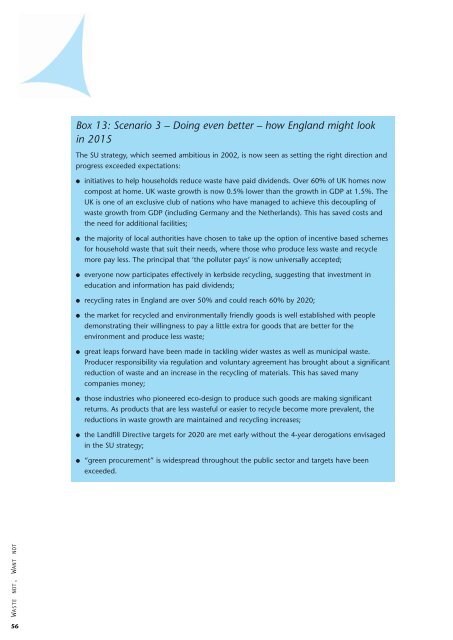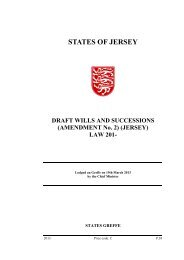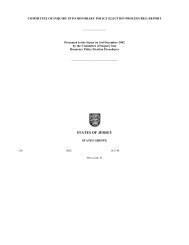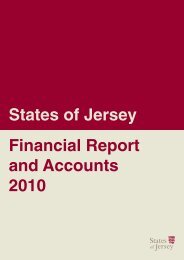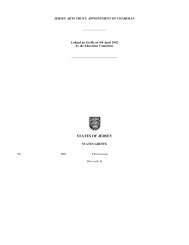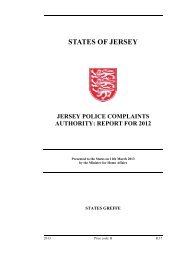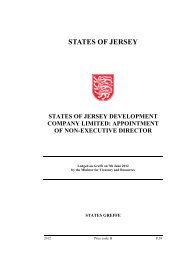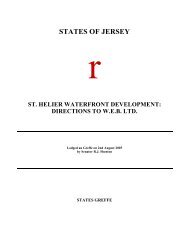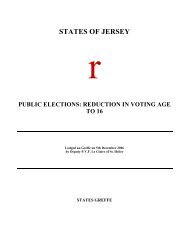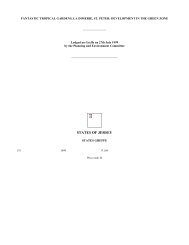Waste not want not - States Assembly
Waste not want not - States Assembly
Waste not want not - States Assembly
Create successful ePaper yourself
Turn your PDF publications into a flip-book with our unique Google optimized e-Paper software.
Box 13: Scenario 3 – Doing even better – how England might look<br />
in 2015<br />
The SU strategy, which seemed ambitious in 2002, is now seen as setting the right direction and<br />
progress exceeded expectations:<br />
●<br />
●<br />
●<br />
initiatives to help households reduce waste have paid dividends. Over 60% of UK homes now<br />
compost at home. UK waste growth is now 0.5% lower than the growth in GDP at 1.5%. The<br />
UK is one of an exclusive club of nations who have managed to achieve this decoupling of<br />
waste growth from GDP (including Germany and the Netherlands). This has saved costs and<br />
the need for additional facilities;<br />
the majority of local authorities have chosen to take up the option of incentive based schemes<br />
for household waste that suit their needs, where those who produce less waste and recycle<br />
more pay less. The principal that ‘the polluter pays’ is now universally accepted;<br />
everyone now participates effectively in kerbside recycling, suggesting that investment in<br />
education and information has paid dividends;<br />
● recycling rates in England are over 50% and could reach 60% by 2020;<br />
●<br />
●<br />
●<br />
●<br />
the market for recycled and environmentally friendly goods is well established with people<br />
demonstrating their willingness to pay a little extra for goods that are better for the<br />
environment and produce less waste;<br />
great leaps forward have been made in tackling wider wastes as well as municipal waste.<br />
Producer responsibility via regulation and voluntary agreement has brought about a significant<br />
reduction of waste and an increase in the recycling of materials. This has saved many<br />
companies money;<br />
those industries who pioneered eco-design to produce such goods are making significant<br />
returns. As products that are less wasteful or easier to recycle become more prevalent, the<br />
reductions in waste growth are maintained and recycling increases;<br />
the Landfill Directive targets for 2020 are met early without the 4-year derogations envisaged<br />
in the SU strategy;<br />
●<br />
“green procurement” is widespread throughout the public sector and targets have been<br />
exceeded.<br />
WASTE NOT, WANT NOT<br />
56


